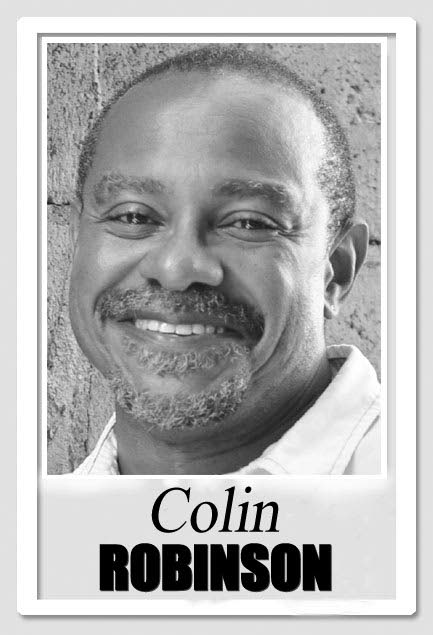Seismic matters

It’s now beyond all dispute: God is a Trini.
How else to explain how, for so many, the impact of our worst earthquake in a century has been "small ting." And how we all survived, it seems. Seismic facts aren’t sufficient to provide meaning for that.
What’s even more mystifying is why the Venezuelan epicentre of a 7.3 quake hasn’t produced a chaos and exodus of people from that already buffeted country who even the most hardened protectionists here couldn’t deny were refugees.
We all shared in that terrifying minute and a half of uncertainty on Tuesday. We all remember hooow looong it lasted. Some of us recall the small, deceptive lull in the middle.
Sure, a few buildings suffered serious damage. But it’s eerie how life has continued unshaken in so many ways. Perhaps we are all in post-traumatic denial. Indeed, perhaps we have been since our plantation days, passing that uncertain gift on to our children, raising them to play mas through a hurricane, to weather violence and injustice against others.
I took a shower, I locked the house, I drove to the airport, I bought alcohol, and I got on a plane. By the time I did, power at home was back.
More analysis hopefully will emerge in the weeks ahead. But one can’t help but contemplate how unprepared we seemed. How many things can fall with not too much shaking. And—unlike a storm, when the run-up is long and anxious—how little authority has been projected by the state in the aftermath.
Hopefully I’ll remember Drop, Cover, Hold in future; but notwithstanding the huge emotional impact of the 2010 quake in Haiti, I found myself hovering under the open back door completely unsure if the latest I’d read was that standing under door jambs was still good or now bad. I wasn’t crawling under the bed.
When electricity was knocked out and most radio stations off the air, I still had Digicel mobile service. My first instinct was to call my sister abroad, and immediately got through. After sweeping up the broken glass, I opened the ODPM app for guidance, only to discover the last alert in it was from March. When social media started to slow, I listened to the delayed state TV evening news broadcast on the car radio.
It feels like a disaster—without the destruction. From the time I stood watching the two tall black water tanks on either side of the yard wine, and waiting for one to topple, and lasting until now, is this question:
What matters?
What, at the end of the day, is important to us as Trinbagonians? Had there been a widespread collapse of infrastructure, utility services and transportation, what would have mattered to us as a nation? How would we have stood with each other?
Would everyone who could have, turned and left? Would Kamla and Barry, Roody and Rodney have found every opportunity to blame the Government’s response? Would they in fact have been as incompetent as is easily imagined, with relief and restoration efforts as mishandled and lacking transparency as buying a Tobago boat? Would our 1% have invested in rebuilding; and on what terms? What would all those boys with all those guns have done? Would they be a new elite? Would the drugs thrive off devastation, or simply find somewhere else to pass? Would Tony Garcia’s priority be ensuring SEA happened in 2019?
Things seem different in the aftermath of the quake than they did after 1990, or even following the last serious storm. That allahweisoneness, which international sporting most brings out, and is the only thread holding us together sometimes, wasn’t out in the streets by me, and seems scarce on social media. It’s odd, too, because the UNC (so far) seems to have refrained from partisanship and blaming of the PNM for the disaster response. And fresh on the heels of his belated and unreserved contrition (however mistargeted) over the party’s Tabaquite constituency Sports Day sari/gorilla skit, our Prime Minister shared with his nation that he was scared when the world shook. Ansa McAl’s breweries, for which toxic masculinity has been an advertising staple for a decade, apologised for encouraging cricket fans to hit their nagging women for six.
It ought to be a moment for some sort of hope. But I am still standing in the shaking and the shaking and the sounds of the glass and the birds and the dogs, under the sill of my back door, opened toward the tall green hill so close, searching for the answer, if the house fell down, or the neighbour’s, or the earth opened in northwest Trinidad, and the roads and houses, the supermarket and internet, the parliamentary pappyshows, the church and airport were gone, what would matter to us, how would we matter to each other.


Comments
"Seismic matters"